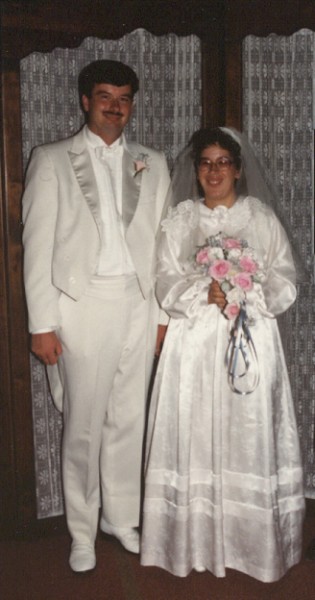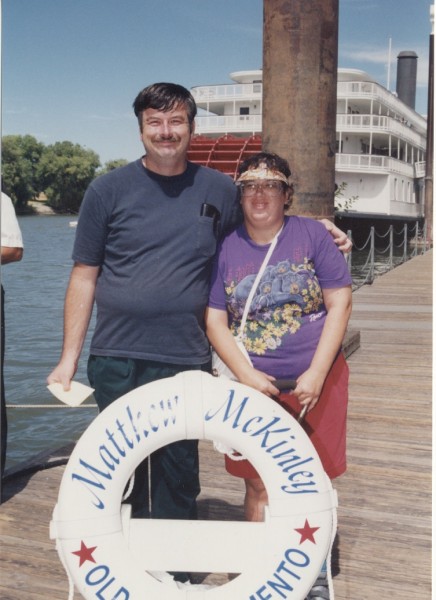Facing the Future of Your Special Needs Child
In my article about adopting a special needs child I shared with you the tender moments and some of the challenges our daughter Carol experienced as a child. Her challenges, magnified, became our challenges. We had to deal with them, as any parent of a special needs child would, adopted or not.
She’s a mature adult now. In fact, she’s 51 years old. We’ve learned a lot during those years. I remember well when she was a child about 5 years old. Being aware of the struggles we were going through with her in those early years, a friend said to me, “What will happen to her when she’s an adult? What will you do?” To her it seemed hopeless.
I answered her with this comment, “I don’t know. We can’t worry about tomorrow. We must deal with today the best we can. My husband and I have faith that somehow it will all work out.” I meant it. That thought comforted me many times, and still does. Oh, how we have prayed for guidance. Here’s how it has come to pass so far.
After High School Graduation
Carol wanted to be normal. She saw her peers at church and school moving on after graduation. Many were going away to college—moving out. That sounded good to her. “Mom,” she said, “I want to go to college, too. I want to move out and have roommates like everybody else.” We knew college was not an option for her, having graduated with a “special certificate” only as an acknowledgment of her special education attendance through the years. She thought it meant she could go to college, too.
We thought she deserved as many opportunities for development as possible. So if she wanted to move out and have roommates and more education, then we needed to make it happen. We sought help through state Family Services. They arranged for her to move into a group home with other young adults with special needs. Carol was delighted at the prospect of “growing up and moving away.” The group home was only a few miles from our home, but to her it was a new world.
We also arranged for her to be in a program that helped these disabled young adults learn new skills. So, in effect, she was “going to college.” She liked the whole idea. It made her feel normal.
I wish I could say it all worked out perfectly, but the reality is, there were still challenges. She didn’t like the group home rules, and she grew tired of the classes. Still we insisted she continue on, saying that’s how it is in a grownup’s world. It’s not just about fun, but about learning new skills and how to get along with others. The house parents, a delightful young couple, were great. They did their best to make it work, and it did for a while.
After a couple of years she wanted to move out of the group home situation. The case workers did their best to help improve her situation at the group home, but in the end she was not progressing in that setting. They suggested a more independent living arrangement. She moved into an apartment shared by five other women with disabilities similar to hers, two to a bedroom. They had a supervisor who stopped by to check on them, help them with grocery shopping, cooking, and medication needs. She liked that much better. Eventually that, too, lost it’s luster.
During this time Carol was working in sheltered workshop programs. This worked out well for her for a few years. However, Carol has a difficult personality. She can’t take criticism, explodes, and has seizures. If a boss gives her instructions she takes it as an insult. “So you don’t think I can do it. You think I’m stupid!” she would shout, then erupt into a full-on fit no matter how hard they tried to calm her. The workers at these programs did their best to help her, but she kept getting dropped from the work programs because she was too disruptive and unmanageable.
I spent many hours working with program directors and case workers, trying to help Carol behave appropriately. Many of them gave her second, third, and fourth chances. She learned a lot along the way, and so did I. At times certain workers were a perfect fit and helped her in amazing ways. We kept searching and praying for them to show up when she needed them most. And so often they did. We, also, continually worked with doctors to make sure she was receiving the proper medication.
She Found Her True Love
When she was an older teenager she was introduced by a cousin to a young man, Kim, who also had special needs. His disabilities were evident, but less serious than hers. They went on a few dates with the relative and had some good times. Then Kim suddenly moved away. Far away across the country to where his parents lived. She didn’t hear from him for about nine years.
Then one day, the phone rang. Carol, now 27 years old, was visiting us for the weekend (she was still living in the independent apartment program). The voice on the phone said, “Is Carol still around?” It was Kim! He asked if he could come and visit her. She was delighted at the thought. She had not dated anyone since he left, though she rarely ever mentioned his name. I think he basically disappeared from her radar.
The visit from Kim was like no other. He came into the living room where Carol was waiting. We all sat and began to chit chat about what he was doing. He had moved back to our town and had a janitorial job. After only a few minutes of this, Carol abruptly said, “Well, are we going to get married or not?”
I nearly fell off the chair. We didn’t know what to say, but Kim did. Without hesitation he said, “Well, I thought we would have a couple of dates first.” She said, “Okay.” They went on a few dates, set a wedding date and were married a couple of months later. It was a lovely wedding, with many guest attending the reception. Our special needs child felt very special, indeed.

We never dreamed she would marry, but there she was—a bride all decked out and looking beautiful, with a tuxedo-adorned groom at her side. I remembered my statement from many years ago, “My husband and I have faith that somehow it will all work out.” They moved into a small apartment not far from us and began their life together.
Their Move to California
Two years later they decided they wanted to move to California. Kim had always wanted to live there and Carol liked the idea, too. He had a mentor/friend there who would help them get settled. We were a bit unsure about them moving away from us, but it was their decision, not ours. Kim made that quite clear. So we wished them well. As it turned out, it was a good move for them. Carol has mild palsy and falls easily, so being out of the snow was good for her.
They became involved in programs for the disabled there, which are superior to anything we’d known before. It was an excellent move for them and worked out well for several years. Carol called us often, nearly every day. We visited them and they us a few times a year.
They enjoyed every tourist spot in Sacramento. They had many good times together. Neither of them could drive, so the bus was their main mode of transportation. They became expert in the bus routes.

There is much more to this story, but this will suffice for now. What has happened in the past ten years since then will provide a whole new view of how to deal with ongoing challenges in parenting an adult special needs child. Stay tuned. More to follow later.
In the meantime, as you look at your own situation, just keep in mind that “things will work out.”




